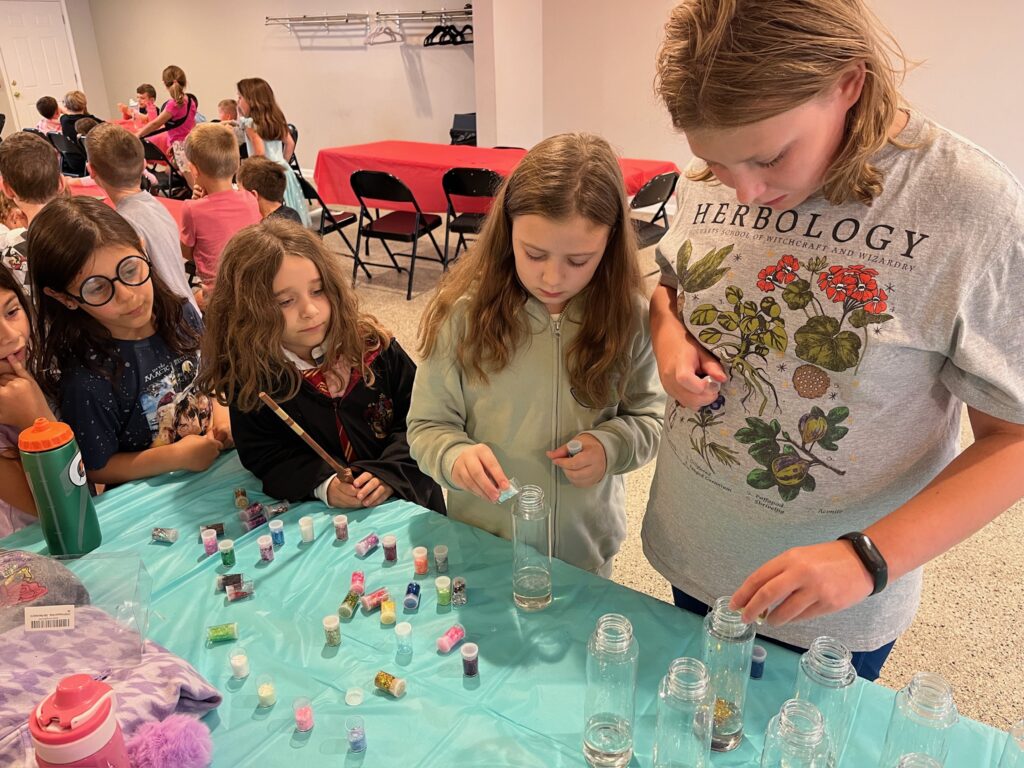
When considering summer camp, many parents wonder whether their child would benefit more from being in a group with only kids their own age. It’s a natural concern—after all, schools often separate children by grade level, so it might seem like the best way to structure a camp experience as well.
However, mixed-age camp groups offer unique advantages that help children grow socially, emotionally, and even academically. At camp, kids have the opportunity to interact in a more natural, community-like setting where they can learn from one another, develop leadership skills, and form friendships that might not happen in a single-age group. Instead of limiting their interactions, a mixed-age environment opens doors to meaningful learning and collaboration in a way that makes camp an even more enriching experience.
Older campers naturally take on leadership roles in mixed-age settings. Whether it’s helping a younger child learn the rules of a new game, explaining how to complete a craft, or simply modeling positive behavior, these experiences foster confidence and responsibility. Older children gain valuable leadership and mentoring skills that will serve them well in school and beyond.
When children of different ages interact, they develop a deeper sense of empathy. Older kids learn to be patient and understanding, while younger children feel supported and encouraged. This dynamic helps create a culture of kindness and inclusivity that extends beyond camp.
Mixed-age groups mimic real-world social settings, where people of all ages work, play, and learn together. Campers feel like part of a larger “camp family,” which helps them build friendships outside of their immediate peer group.
Every child learns at their own pace. In mixed-age settings, there’s a wider range of skills and abilities, allowing kids to learn from one another in a natural way. Younger campers benefit from exposure to higher-level thinking, while older campers reinforce their own learning by helping others.
Younger children tend to look up to older campers, often pushing themselves to try new activities or step out of their comfort zone. Whether it’s attempting a more advanced art project or participating in a group discussion, being around older peers encourages them to stretch their skills and gain confidence.
When kids are all the same age, there can be an unspoken pressure to perform at the same level. In mixed-age groups, children are less likely to compare themselves to others and instead focus on personal growth. This environment fosters a more collaborative and less competitive atmosphere.
At Stutelage, we welcome campers ages 3 through 10 and have seen firsthand how beneficial it is for all of them. Our younger campers gain confidence and learn from the older children, while our older campers develop leadership, patience, and a sense of responsibility.
Because our camp is led by certified teachers, we ensure that every child receives instruction and activities that are tailored to their developmental level. Our educators are experts in differentiated instruction, meaning that we design our camp experience to meet the needs of all learners, regardless of age or ability. Every child is challenged at their level and supported in their growth.
Mixed-age groups foster a sense of community, help children build critical life skills, and create a camp experience that is more enriching, engaging, and rewarding for all. If you’re looking for a summer camp that nurtures confidence, social skills, and learning in a fun and welcoming environment, Stutelage is the perfect place to be!
